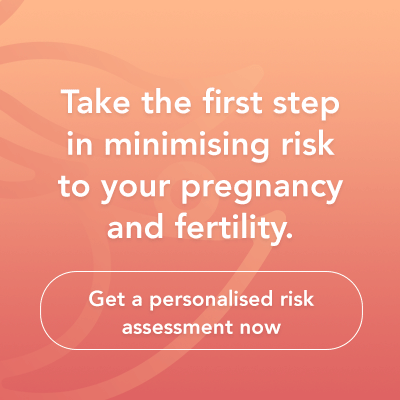When it comes to fertility, many factors come into play—hormonal balance, age, lifestyle, and even diet. But there’s one area often overlooked in discussions about fertility: gut health. While it may seem unrelated, your gut plays a critical role in your overall reproductive health, and improving your gut health could significantly impact your fertility.
The gut is home to trillions of bacteria, collectively known as the microbiome, that influence many bodily functions, including digestion, immune response, and even hormone regulation. An imbalance in gut bacteria, known as dysbiosis, can disrupt hormonal balance, which in turn can affect fertility.
The Link Between Gut Health and Hormones
The gut microbiome interacts with various hormones that regulate reproductive health, including oestrogen, progesterone, and insulin. When the gut is out of balance, it can affect oestrogen metabolism. This means that your body may not process oestrogen effectively, leading to hormonal imbalances that could interfere with ovulation, egg quality, and overall reproductive health. Insulin resistance, often linked to gut health issues, can also affect ovulation and increase the risk of conditions like polycystic ovary syndrome (PCOS), which is a common cause of infertility.
For women who are hormonal when pregnant, the importance of balancing these hormones becomes even more pronounced. It’s essential to support hormonal regulation with proper diet and gut health to ensure the body functions optimally during pregnancy.
Gut Health and Immune Function
The gut is closely linked to the immune system. A significant portion of your immune cells are found in the gut, and these cells help regulate inflammation throughout the body. Chronic inflammation caused by poor gut health can affect the delicate balance required for conception. Inflammation can damage the reproductive organs, disrupt hormone production, and even interfere with embryo implantation. By supporting gut health and reducing inflammation, you can optimise your chances of conceiving.
A pregnancy nutritionist can help guide you in maintaining a balanced diet that promotes both gut and reproductive health, ensuring you’re getting the nutrients needed for a healthy pregnancy.
How to Improve Gut Health for Better Fertility
- Eat a Balanced Diet: A diet rich in fibre, healthy fats, and antioxidants can help maintain a healthy gut microbiome. Foods like fermented vegetables, kefir, and yoghurt can promote the growth of beneficial bacteria. Additionally, ensuring adequate intake of vitamin A during pregnancy is crucial for healthy immune function and hormonal balance.
- Reduce Sugar Intake: Excessive sugar can lead to an imbalance in gut bacteria and promote inflammation, both of which can negatively affect fertility.
- Stress Management: Chronic stress can impact both gut health and fertility. Regular exercise, mindfulness practices, and a balanced lifestyle can help keep stress levels in check.
- Probiotics: Adding a high-quality probiotic supplement to your routine can help restore gut balance, improve digestion, and support hormone regulation.
Consulting with a Professional
For those who are struggling with fertility, it’s essential to consider all aspects of your health, including your gut. Katrina Ridout, an Accredited Practicing Dietitian & Nutritionist, understands the intricate connection between gut health and fertility. Her personalised approach can guide you through a tailored nutritional and lifestyle plan to support both your gut and fertility health.
If you are in Brisbane and looking for professional guidance, working with Katrina Ridout can provide local support to help you improve your gut health and fertility.
With the right support and knowledge, improving your gut health could be the first step toward achieving your fertility goals.
By prioritising gut health, you’re giving your body the best chance to function optimally, improving not only your fertility but also your overall well-being.
